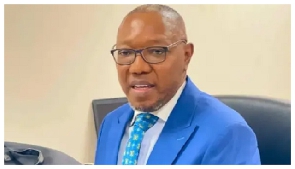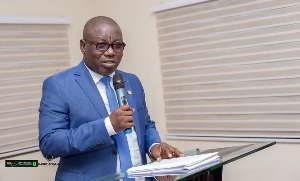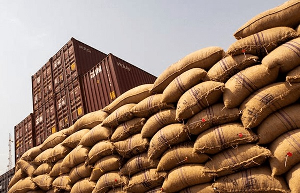Dr. Clement Apaak, Deputy Ranking Member of Parliament’s Education Committee, has responded to the latest report released by a group of Civil Society Organisations highlighting the challenges confronting the education sector, particularly basic education.
According to Dr. Apaak, the issues raised by CSOs are not only factual but also reflect the actual state of the country’s challenges.
The report released by a coalition of civil society organisations and teacher groups said the Akufo-Addo government has completed only 17 of 5,400 schools under trees since 2021.
The report, which was put together by ten CSOs including STAR-Ghana, CAMFED, and ActionAid, stated that at the current rate, it will take Ghana more than 300 years to eradicate the over 5,400 schools under trees, sheds, and dilapidated structures.
The report further disclosed that between 2015 and 2021, public basic schools grew by 12 per cent with private schools growing by 68 per cent but in the medium term 2018-2021, only an average of 0.8 primary schools were constructed each year per district.
The slow growth of public schools, due to the lack of adequate investment in basic school infrastructure suggests the government is shifting the responsibility of providing free compulsory universal basic education to the private sector, which is beyond the financial reach of the poor, the report said.
In his response, the Builsa South MP stated that the contents of the report are matters that he is aware of and believes to be true, both as a member of the Education Committee and as an academic.
Dr. Apaak reiterated that, while we should be looking at solutions based on the fact that education is a right and that, as a developing nation, one of the ways to achieve the level of development we deserve is to invest in education, it is also about value for money.
He stated that it is also about prioritising, which is why he agrees with the CSOs’ recommendations.
He also stated that he had been vindicated in his belief that basic education in Ghana was on the verge of collapsing, particularly when considering the issues raised by the CSOs collectively.
In an interview, the lawmaker explained that the Minister had yet to submit the decision to modernise the basic system into a cluster to the Education Committee.
He emphasised that, given the challenges we face as a nation, it is clear that this proposal will be fraught with difficulties.
He agreed with the CSOs’ recommendation that the government create an emergency infrastructure expansion plan for overcrowded urban and peri-urban schools.
According to him, the Plan must also include a strategic approach to closing the 25% gap between primary and secondary schools, as well as new schools for underserved communities.
He noted that while funding for secondary education has increased since the introduction of free SHS, funding for basic education has decreased, and funding for tertiary education has remained relatively stable despite some challenges.
He added that, despite the economic crisis, there are sufficient resources to address some key sectors of the economy, such as education, and that the IMF alluded to these facts in their assessment of the country before approving our request for a bailout.
General News of Tuesday, 20 June 2023
Source: rainbowradioonline.com













